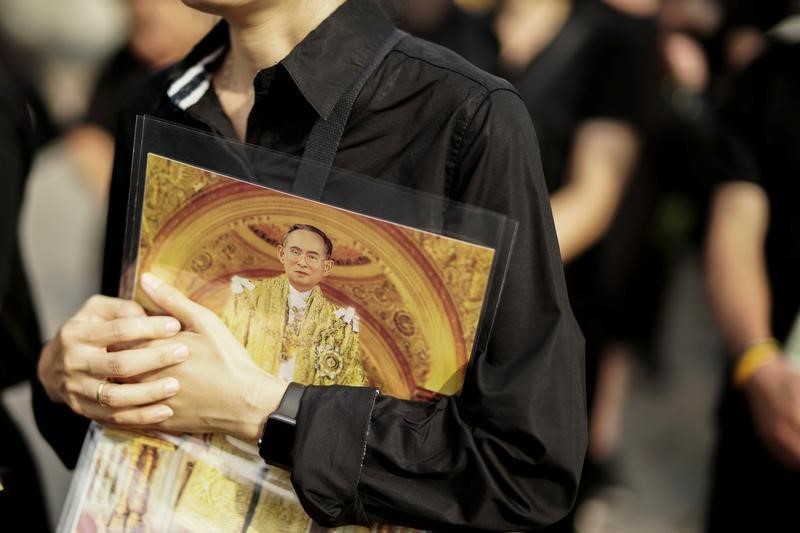BANGKOK (Reuters) - Thailand's police chief said on Wednesday insulting the monarchy would not be tolerated and anyone considering doing so should get out of the country, after a spike in cases following the death of King Bhumibol Adulyadej on Oct 13.
The widely venerated king died at the age of 88 after seven decades on the throne and the military government has declared one year of mourning.
Speaking ill of the king and the royal family is not only taboo but also illegal under the criminal code which makes anyone who "defames, insults or threatens the king, queen, heir-apparent or regent" liable to 15 years in prison.
Following the king's death, many Thais have become sensitive to anything they deem disrespectful, especially in an outpouring of material about the king and the royal family posted online.
National police chief Jakthip Chaijinda said police were investigating 20 cases of royal insult, or lese-majeste, since the king's death and arrest warrants have been issued for eight out of the 20 suspects.
"For lese-majeste cases, if people don't want to live in Thailand they should go abroad," Jakthip told reporters.
"If they don't have money for the air fare I will pay for it, they can ask me to buy their plane ticket," he added.
The government has also been taking steps to stop what it regards as royal insults being committed abroad.
The foreign ministry said on Tuesday it had asked for the extradition of several people suspected of insulting the monarchy but it did not give details.
The military has long seen itself as the defender of the monarchy and it has over decades invoked its duty to protect the monarchy to justify its intervention in politics.
Since seizing power from a populist government in 2014, the junta has taken a hardline stance against perceived royal insults and courts have handed down record sentences.
Critics and some Western governments have raised concern about the state of human rights since the coup.
Political activity and peaceful gatherings are banned and military courts have been used to try national security cases, including cases involving civilians.
The military government has defended its rights record saying it must act to maintain order after a decade of divisive and at times violent political rivalry that has pitted the royalist-military establishment against populist political forces.

The king's son and designated heir, Prince Maha Vajiralongkorn, is in line to become the next king but has asked that his formal ascension be delayed while he grieves with the people, the government has said.